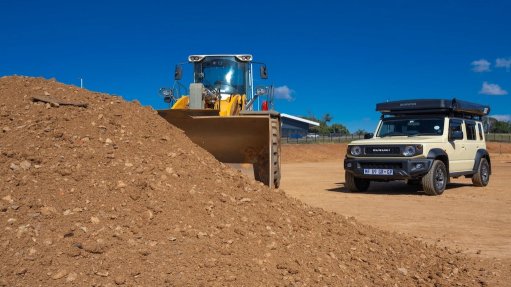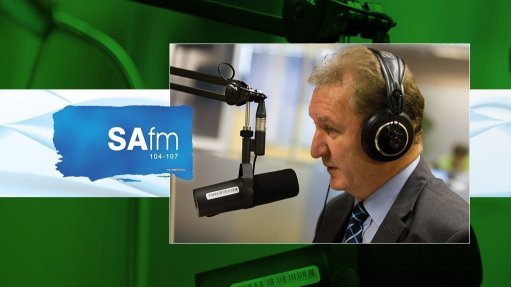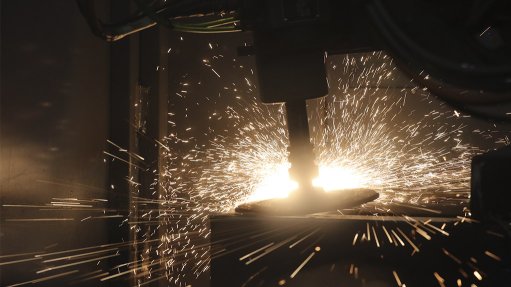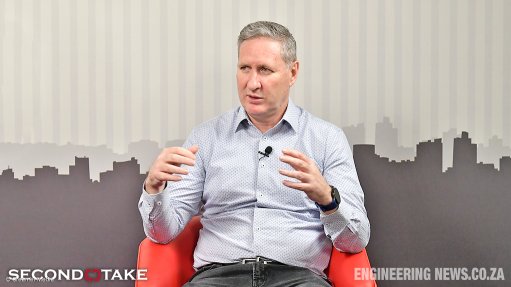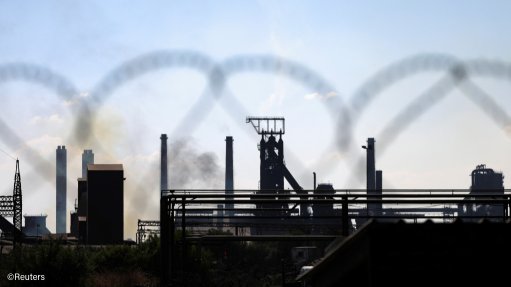Tailings equipment security, integrity spotlighted

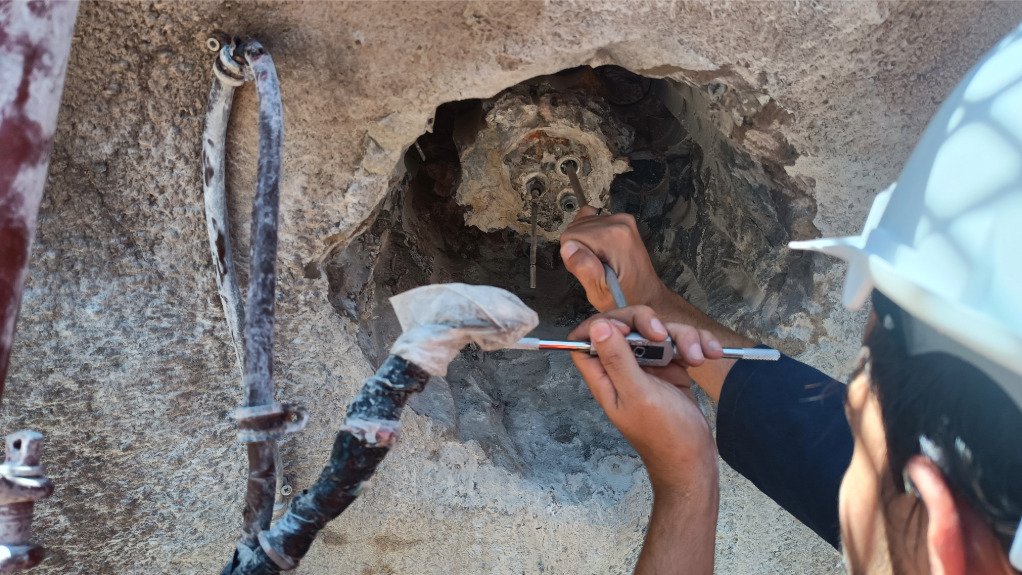
MAINTENANCE MATTERS Maintenance at regular intervals can assist in prolonging equipment lifespan
The industries involved in tailings retreatment and the rehabilitation of tailings storage facilities (TSFs) are increasingly moving towards more sustainable and socially responsible practices, which are driven by technological innovation, says installation and monitoring of instrumentation specialist Terra Monitoring senior geotechnician Schalk Prinsloo.
However, TSF operators have to navigate a myriad of challenges while having to ensure such facilities are safe and conform to industry integrity standards, which, in turn, are also becoming more stringent because of several high-profile incidents in recent years.
Prinsloo explains that TSF operators in the industry are embracing advancements in technology, with many stakeholders increasing the focus on ongoing developments in research and development to deploy the newest technologies at their facilities.
Mining companies are also increasing their focus on environmental remediation factors – including the integration of sustainability goals that are aligned to regulatory compliance, as well as environmental, social and governance considerations – to ensure that TSFs are safer, he elaborates.
Some TSF clients need to monitor different parameters of their facilities, even if the mine from which the tailings came from has been closed for a number of years.
“By embracing these different trends in the industry, we can mitigate environmental risks and enhance community relations, as well as contribute to a more sustainable future in mining operations,” adds Prinsloo.
Challenging Environments
Despite positive efforts being made towards sustainability and ensuring safety, the industry is encountering significant challenges, says Prinsloo.
These particularly relate to environmental risks, theft of equipment, difficulties posed by the vast size of TSFs and their typically being located in harsh environments.
He notes an increase in thieves targeting above-ground instrumentation and equipment, even when such equipment is protected using, for example, a cage.
Consequently, TSF operators lose valuable data and equipment, which can have longer-term impacts on the overall management of TSFs, as they require frequent monitoring, provided by a network of instrumentation that monitors ground conditions and water levels and leaks, besides other parameters.
The prevalence of equipment theft underscores the need for robust monitoring systems to safeguard assets and data integrity.
To protect data integrity, Terra Monitoring advises clients to integrate advanced monitoring systems, which update data on a regular basis. This involves gateway and access systems that are connected through Internet of Things (IoT) technology, with the data stored in cloud-based software.
With such a system in place, the data is uploaded directly to an external source; therefore, all data reported up to the time of an incident, such as theft, remains accessible despite the reporting device being missing.
Additionally, reporting instrumentation units can be equipped with early warning systems and alarms to deter criminals and alert security teams to criminal situations.
Prinsloo also suggests that devices, such as alarms triggered by the opening of an enclosure housing equipment or instrumentation, can trigger notifications to a control room where data loggers are stored, or directly to security personnel, eliminating the need for manual intervention.
This ensures continuous monitoring and an immediate response to any concerning events.
Further, Prinsloo says the impact of harsh environments on TSFs, such as corrosion and/or acidity, can shorten the life span of certain sensitive instruments.
The remote locations in which many TSFs are situated can also affect the wireless reception quality of instruments and equipment, which, in turn, can impact on the effectiveness of the installed instrumentation and shorten its life span.
In such conditions, Prinsloo recommends using robust solutions that have been designed to operate in harsh environments.
However, he acknowledges that such devices are usually more expensive, and for this reason, Terra Monitoring works with clients to find a solution that meets their specific requirements, even with a constrained budget.
Owing to the vast size of most TSFs, Terra Monitoring director Barry Kruger highlights the company's maintenance contracts that assist in prolonging the life of equipment.
As part of such a contract, Terra Monitoring personnel visit the site during regular intervals to conduct maintenance work including replacing desiccant bags to prevent moisture build-up in equipment, ensuring equipment is free of debris and contaminants, and conducting overall integrity checks on equipment.
In Control
Using IoT allows for all geotechnical instrumentation to be connected to a centralised platform, which provides instant access to data, and can be coupled with control room early-warning systems. With an IoT infrastructure, devices are connected to the Internet or a network for near-realtime reporting.
This infrastructure can reduce various risks, including wrong data being recorded with manual readings or data loss owing to equipment theft, while increasing productivity and the management of TSFs.
“Managers don’t need to waste time reading units one by one. They can connect them to a control room and have all the data at their fingertips,” Prinsloo enthuses.
Comments
Press Office
Announcements
What's On
Subscribe to improve your user experience...
Option 1 (equivalent of R125 a month):
Receive a weekly copy of Creamer Media's Engineering News & Mining Weekly magazine
(print copy for those in South Africa and e-magazine for those outside of South Africa)
Receive daily email newsletters
Access to full search results
Access archive of magazine back copies
Access to Projects in Progress
Access to ONE Research Report of your choice in PDF format
Option 2 (equivalent of R375 a month):
All benefits from Option 1
PLUS
Access to Creamer Media's Research Channel Africa for ALL Research Reports, in PDF format, on various industrial and mining sectors
including Electricity; Water; Energy Transition; Hydrogen; Roads, Rail and Ports; Coal; Gold; Platinum; Battery Metals; etc.
Already a subscriber?
Forgotten your password?
Receive weekly copy of Creamer Media's Engineering News & Mining Weekly magazine (print copy for those in South Africa and e-magazine for those outside of South Africa)
➕
Recieve daily email newsletters
➕
Access to full search results
➕
Access archive of magazine back copies
➕
Access to Projects in Progress
➕
Access to ONE Research Report of your choice in PDF format
RESEARCH CHANNEL AFRICA
R4500 (equivalent of R375 a month)
SUBSCRIBEAll benefits from Option 1
➕
Access to Creamer Media's Research Channel Africa for ALL Research Reports on various industrial and mining sectors, in PDF format, including on:
Electricity
➕
Water
➕
Energy Transition
➕
Hydrogen
➕
Roads, Rail and Ports
➕
Coal
➕
Gold
➕
Platinum
➕
Battery Metals
➕
etc.
Receive all benefits from Option 1 or Option 2 delivered to numerous people at your company
➕
Multiple User names and Passwords for simultaneous log-ins
➕
Intranet integration access to all in your organisation








